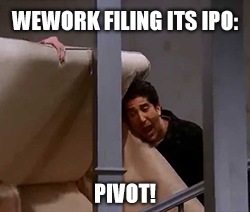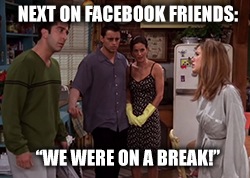Friday Four Play: Back Into the Woods
Agony, beyond power of speech. When the one thing you want is the only thing out of your reach!
— The Princes, “Into the Woods”
All the market wanted today was a solid U.S. jobs report. Wall Street was promised a strong jobs report yesterday by ADP and Moody’s Analytics.
Yet those jobs remain out of reach. The U.S. Department of Labor reported that the U.S. economy only added 130,000 new jobs in August, well short of the 150,000 economists expected.
The news throws the U.S. economy back into the woods (see what I did there?), putting pressure on the Federal Reserve to cut interest rates again this month.
Agony!
The rest of the Labor Department’s numbers were pretty “meh.” The unemployment rate stayed steady at 3.7%, as expected. Average hourly wages rose by 0.4%, which was slightly better than expected.
But the overall “meh-ness” of the report may be just the thing that stays the Fed’s hand. According to Scott Clemons, chief investment strategist at Brown Brothers Harriman: “If we weren’t already talking about recession risk and already looking for signs of a slowdown, we wouldn’t start today because of this jobs report.”
In other words, the August jobs report isn’t so much agony for the U.S. economy, but apathy — which would make a terrible song.
And now, here’s your Friday Four Play:
No. 1: WeWork Pivots

WeWork, the hot mess of a real estate company that thinks it’s a tech firm, is now considering seeking an IPO valuation in the $20 billion range, down from previous indications of a $47 billion valuation.
If you’ve followed this circus sideshow, you can understand why.
WeWork has been the subject of legal scrutiny from landlords, public ridicule over its CEO trademarking “We” and selling it back to the company for $5.9 million and general “wait, what?” over its S-1 filing with the Securities and Exchange Commission.
The Takeaway:
Repeat after me: WeWork is not a tech company!
But the real estate firm has done everything in its power to try to convince you that it is. Why?
Valuation.
In 2018, WeWork lost $1.9 billion. For a real estate firm, that’s just absurd. But for a tech company in its growth stages, it’s somewhat normal. It’s the same game that Uber and Lyft played earlier this year. Neither are technically tech companies, either — they hope to be thanks to driverless vehicles, but they aren’t there yet.
WeWork doesn’t even have that “maybe” or “someday” factor implied with Uber and Lyft. It’s not worth a $47 billion valuation. I’d even go as far as saying it’s not worth a $20 billion valuation given last year’s loss.
As real estate mogul Sam Zell said of WeWork yesterday: “Every single company in this space has gone broke.”
Let me reiterate: Avoid WeWork’s IPO like the plague.
No. 2: Ball of Confusion

That’s what AT&T Inc. (NYSE: T) is today, hey, hey.
There are lots of reasons to dislike AT&T as an investment option: the fact that the company lost nearly 1 million TV subscribers in the second quarter … the fact that it’s just shy of $180 billion in debt … the list goes on.
But the malaise at AT&T goes deeper than the surface numbers. For instance, in an effort to salvage its DirecTV Now service (after significantly raising subscription prices), AT&T renamed the service AT&T TV Now.
That sounds mostly harmless until you realize that AT&T already had a streaming TV service called AT&T TV. It’s like the Friends episode where Ross meets Russ. And apparently, even AT&T can’t tell the services apart.
As Cord Cutters News reported:
And if that wasn’t confusing enough, both AT&T TV and AT&T TV Now customers use the same mobile app.
The Takeaway:
AT&T told investors this year that it’s aggressively paying down its debt. After all, $180 billion is nothing to laugh about. But you have to wonder if a company that can’t tell the difference in its own products can really deliver on that promise.
Most of that debt comes from AT&T’s acquisition of Time Warner. The plan was to leverage Time Warner’s massive content catalogue in the new streaming marketplace and, conceivably, rake in the cash.
It was an OK plan, but the execution has been abysmal. Right now, AT&T has seven different streaming services: AT&T TV, AT&T TV Now, HBO Go, HBO Now, AT&T WatchTV, AT&T U-verse and DirecTV. It’s also planning an eighth service with HBO Max.
With streaming customers already agonizing over Amazon Prime TV, Netflix and Disney+, AT&T has made it as complicated as possible for viewers to find that lucrative Time Warner content.
AT&T has the power to become one of the major players in online streaming … but that’s only if it finds some sanity in its own little ball of confusion.
No. 3: Facebook Friend-Zoned

If you thought Facebook Inc. (Nasdaq: FB) arguments were fun before … you haven’t seen anything yet.
The world’s premier social media company just announced Facebook Dating. The service is designed to compare your Facebook activity, profile, likes, interests and location with other users to help you find a date.
You lazy bum.
“Facebook has always been about creating relationships, and we think we have found a way to create perhaps the most meaningful relationship of all,” said Nathan Sharp, Facebook product manager.
According to Facebook, the service won’t pair users up with anyone in their friends list, but friends of friends are fair game.
And if you were worried about those friends finding out about your crush, fear not. Facebook is implementing a “Secret Crush” feature that allows you to add up to nine Facebook and Instagram friends to a hidden list — which will in no way be made public outside of Cambridge Analytica.
The Takeaway:
I can’t decide if this is brilliant, or the end of civilization as we know it.
On the one hand, Facebook has roughly 1.6 billion active daily users. Many of those are likely looking for love in some form or fashion. By leveraging everything it knows about you, Facebook should have a good chance of hooking you up with someone. Plus, it could increase engagement at Facebook, thus bringing in more revenue.
On the other hand, Facebook isn’t known for handling private data very well. Furthermore, in some parts of the world, employers require access to your Facebook login before and during employment. That’s going to create some rather interesting “watercooler” conversations — if people even have those anymore.
Seriously, though, the privacy concerns alone should make users wary of this new Facebook feature. And we haven’t even touched on the potential for heated Facebook arguments over who “Secret Crushed” whom.
For investors, however, this could be a significant shot in the arm for Facebook, revenue-wise, at a time when the company is reconfiguring the way it handles ads.
No. 4: The Passive Bubble

The Big Short’s Michael Burry is back, and he has a bubble warning for us all.
According to Burry, the flood of money into index funds is very similar to the situation with collateralized debt obligations (CDOs) pre-2008.
The problem is that the money moving into index funds is distorting stock prices. Some stocks in those indexes are priced correctly, but others are rising simply due to demand for the index itself.
In short, Burry says that all flows reverse at some point. When they do, “it will be ugly.”
His solution is to invest in small-cap value stocks. These companies are typically not represented in passive index funds, thus shielding them (and you) from the coming collapse of this bubble.
The Takeaway:
There’s a lot going on here, so I’m letting Banyan Hill expert Michael Carr handle the takeaway on this one:
Neither research nor common sense support either of these conclusions.
“Central banks and Basel III have more or less removed price discovery from the credit markets, meaning risk does not have an accurate pricing mechanism in interest rates anymore.”
Here’s a nice paper, one of many, refuting this talking point: “The Effects of the Volcker Rule on Corporate Bond Trading.”
This is a concern that pundits have expressed for years. Researchers and regulators have been unable to confirm those concerns. Now, in a crisis, liquidity disappears. That’s been true since traders bid on salt in ancient Rome. It will always be true. So, pundits will get to say “I told you so” in the next crisis. But there’s no way to make money from that reality.
“And now passive investing has removed price discovery from the equity markets. The simple theses and the models that get people into sectors, factors, indexes, or ETFs and mutual funds mimicking those strategies — these do not require the security-level analysis that is required for true price discovery.”
If this was true, the correlation of all stock movements would equal one. Yet, every day, some stocks go up while others go down. There is still price discovery among individual stocks. That’s the simplest argument on a complex topic.
You can get more of Michael Carr’s genius by subscribing to Peak Velocity Trader or Precision Profits. You won’t regret it.
Great Stuff: Feed the Beast

So, have you fed the Great Stuff beast yet?
We thrive off your feedback here at Great Stuff.
What do you want to see covered?
Are you worried about a recession?
Who’s your favorite Banyan Hill expert, and why?
The answers to these questions and more can be yours for the low, low cost of dropping me a line at GreatStuffToday@banyanhill.com.
Act now! Quantities of Great Stuff aren’t limited … but still, act now.
And don’t forget that you can read all the Great Stuff greatest hits online. It’s completely free!
Until next time, good trading!
Regards,

Joseph Hargett
Great Stuff Managing Editor, Banyan Hill Publishing










